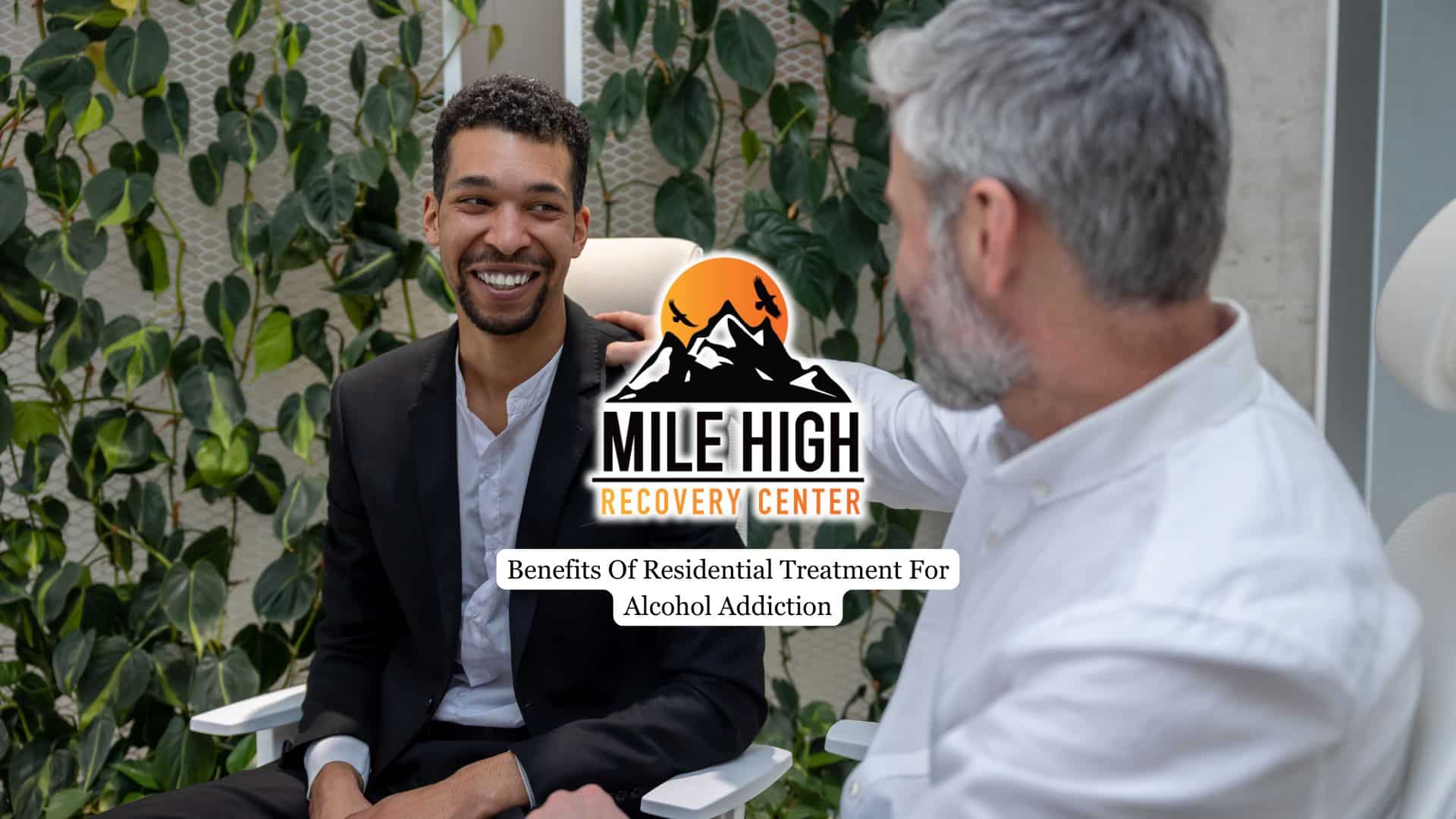Alcohol addiction and substance use disorder present complex challenges that often require comprehensive, structured care to overcome. For many individuals struggling with addiction, residential treatment offers a powerful and effective path to addiction recovery. Residential rehab programs provide a safe, supportive environment where patients can focus fully on their recovery journey, free from outside distractions and triggers.
This article highlights the many benefits of residential treatment for alcohol addiction and substance abuse, highlighting why inpatient rehab is a vital option for long-term recovery.

What Is Residential Treatment for Alcohol Addiction?
Residential treatment, also known as inpatient treatment or simply residential rehab, involves staying at a treatment center 24/7 for a set duration. This immersive approach is designed for individuals with moderate to severe alcohol addiction or co-occurring mental health disorders that require intensive care.
For individuals struggling with addiction to alcohol, residential addiction treatment programs in CO provide a structured, supervised environment where patients receive medical support, therapy, and holistic care tailored to their unique needs.
Safe and Medically Supervised Detoxification
One of the primary benefits of long-term residential alcohol rehab is access to medically supervised detox from alcohol and drugs. Detoxification can be physically and emotionally challenging, especially for those with severe alcohol abuse. Residential treatment facilities offer continuous monitoring by healthcare professionals to manage withdrawal symptoms safely and reduce the risk of complications. This medical supervision ensures a safer start to the recovery process and lays a strong foundation for addiction treatment.
Structured Environment and Routine
A key advantage of residential treatment programs is the highly structured daily routine. Patients participate in scheduled therapy sessions, group counseling, recreational activities, and self-care practices. This routine helps reduce exposure to triggers and distractions from everyday life that often lead to relapse. Residential recovery programs often emphasize building healthy habits such as regular sleep patterns, balanced nutrition, and physical exercise, all of which contribute to improved mental health and well-being.
Comprehensive Therapeutic Support
Residential addiction treatment involves a wide range of therapeutic approaches to address the physical, psychological, and emotional aspects of addiction. Drug treatment centers typically offer individualized treatment plans that combine individual counseling, group therapy, family therapy, and holistic modalities such as mindfulness, art therapy, and yoga. This comprehensive treatment approach is especially beneficial for those with co-occurring mental health disorders, ensuring that both addiction and mental health care needs are addressed simultaneously.
24/7 Professional Support and Supervision
Inpatient rehab provides continuous access to medical staff, therapists, and counselors around the clock. This level of professional support is crucial during moments of intense cravings or emotional distress. Residential treatment facilities offer a secure, alcohol-free environment that shields patients from external pressures and temptations. The constant availability of emotional and practical guidance helps patients stay focused on their recovery goals and navigate challenges safely.
Peer Support and Community Building
Living alongside others who share similar struggles fosters a sense of community and belonging. Residential rehab offers peer support groups where individuals can share experiences, encouragement, and motivation. This social connection reduces feelings of isolation common in addiction and helps build sober networks that can extend beyond the treatment center. Developing social skills and relationships in a supportive environment is a vital aspect of long-term recovery.
Focus on Long-Term Recovery and Life Skills
Residential addiction treatment programs emphasize relapse prevention and equip patients with coping strategies to maintain sobriety after leaving the facility. Treatment plans often include education on managing triggers, stress, and cravings. Patients receive guidance on developing life skills such as communication, problem-solving, and time management. Additionally, treatment centers assist in creating personalized aftercare plans that support continued recovery through outpatient therapy, support groups, or sober living environments.
Improved Treatment Outcomes and Reduced Relapse Rates
Research shows that residential treatment offers better treatment outcomes for individuals with severe alcohol and drug addiction compared to outpatient treatment alone. The immersive nature of inpatient rehab leads to higher rates of successful recovery and lower relapse rates. By providing comprehensive care that addresses addiction and mental health simultaneously, residential programs improve overall quality of life and reduce the likelihood of returning to substance use.

Additional Benefits of Residential Treatment
Beyond direct addiction treatment, residential rehab centers often provide assistance with legal, housing, and employment issues that can impact recovery. Case management services coordinate community resources to support patients’ smooth reintegration into daily life. The residential setting offers a unique opportunity to break free from environments that enable drinking or drug use, creating a fresh start focused solely on healing and growth.
Final Thoughts from Mile High Recovery
Choosing residential treatment for alcohol addiction offers numerous benefits, including medically supervised detox, structured routines, comprehensive therapy, and continuous professional support. Residential addiction treatment programs provide a safe, supportive environment that addresses the complex relationship between addiction and mental health, helping individuals build the skills and resilience needed for long-term recovery.
For those struggling with alcohol abuse, Mile High Recovery’s alcohol residential rehab in Denver, Colorado offers an effective and life-changing step toward reclaiming health, stability, and hope on the path to recovery. At our treatment facility you will not only be guided through all the needed treatment processes, but will also be surrounded by supportive peers who know exactly what you’re going through.







